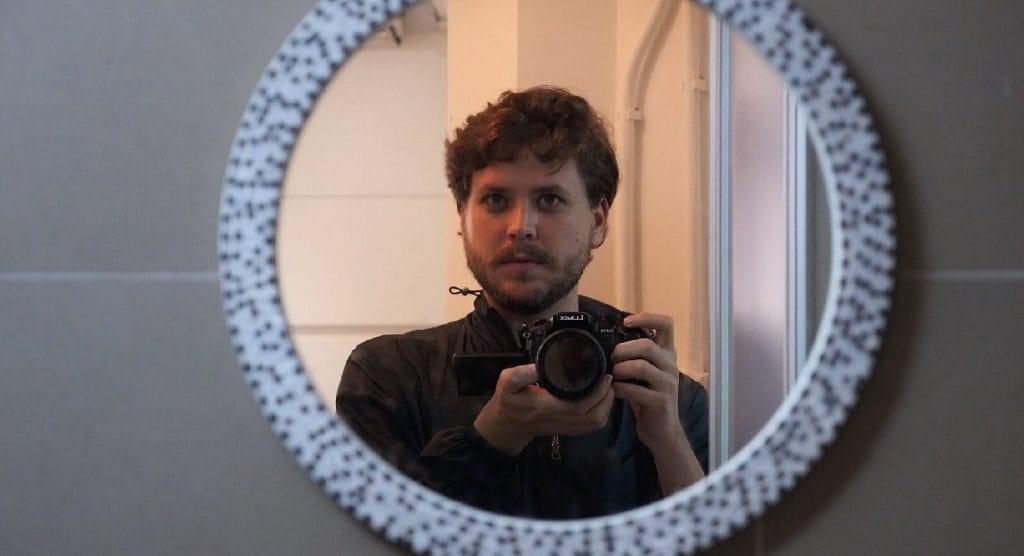
Mohammed Atta and his cohorts planned the 9/11 attacks in Hamburg, Germany, right under the collective noses of international intelligence operatives. Presumably, Atta was successful primarily because the international intelligence community refused to share information with each other. Ever since that discovery, intelligence agencies have been on high alert in Hamburg but are still extremely cautious about sharing intelligence information with each other.
This is the high stress and high stakes environment in which Gunter Bachmann (Phillip Seymour Hoffman) runs an elite German anti-terrorism squad. Operating completely under the radar, Gunter’s strategy is to develop contacts within the Islamic community in Hamburg, using smaller fish as bait to catch much bigger ones. His philosophy is that the smaller players in the terrorist world are easily replaceable; if they are arrested, someone new will quickly fill their shoes. It makes more sense to Gunter to sit back and allow the smaller players to lead him to the big kahunas of the Hamburg terrorism scene. The Hamburg intelligence director, Dieter Mohr (Rainer Bock), prefers for a much different approach, arresting any suspected terrorists no matter what role they play in the grand scheme of things. This repeatedly puts Gunter and Dieter at odds with each other.
One such small fish is Issa Karpov (Grigoriy Dobrygin), a half-Chechen, half-Russian immigrant that Gunter’s team begins to track as soon as he arrives in Hamburg. Physically and emotionally scarred from torturous imprisonment in Russia, Issa is suspected to be an extremely dangerous, militant jihadist. In reality, Issa just wants to collect a hefty inheritance that his corrupt father laundered away in a Hamburg bank. Working with a human rights lawyer, Annabel Richter (Rachel McAdams), Issa tracks down the owner of the bank, Tommy Brue (Willem Dafoe). Gunter’s plan is to find out what Issa wants to do with the multi-million inheritance, suspecting that he will donate the funds to terrorist organizations with the aid of Dr. Faisal Abdullah (Homayoun Ershadi). Gunter has been tracking Faisal for a while now, suspecting that the prominent philanthropist is secretly funneling funds to terrorist organizations by way of a Cyprus-based shipping company. Dieter, of course, wants to arrest Issa immediately, but a CIA agent (Robin Wright) is able to keep him off of Gunter’s back for 72 hours.
Anton Corbijn’s adaptation of John le Carré’s A Most Wanted Man does effectively capture the complexities of counterterrorist intelligence, specifically in our post-9/11 era. Espionage work has become a truly thankless career, not nearly as sexy and glamorous as what James Bond, Jason Bourne or Ethan Hunt make it out to be. Gunter is by all means an average working man with a job that is no more exciting than accountancy. A Most Wanted Man also presents a convincing case for intelligence organizations to work past their legacies of paranoia and embarrassment to join forces for the greater good of the world. Like le Carré, Corbijn reveals a hell of a lot of sympathy for Gunter, presenting his approach to espionage as the ideal that the rest of the world — especially the United States — should adopt.
Focusing on the everyday tedium of espionage, A Most Wanted Man is by no means an action movie in any conventional sense. The narrative gets severely bogged down in the boring minutia of spy work, showcasing the smallest details of Gunter’s investigations, all the while muddling up the plot and any sense of character development. Tomas Alfredson’s adaptation of John le Carré’s Tinker, Tailor, Soldier, Spy took a similar approach, slowing down the narrative pace to one-quarter speed, but at least Alfredson developed a fully realized environment for his characters to exist within. Similarly, Corbijn’s first two features — Control (2007) and The American (2010) — focused primarily on developing richly textured visuals via masterfully crafted mise-en-scène, so it seemed perfectly reasonable to think A Most Wanted Man would take a similar approach.
Instead, Corbijn eschews the very visual qualities that made Control and The American so special. And while the plodding plot is definitely frustrating, Hoffman and Dafoe’s piss poor German accents are what hurt A Most Wanted Man the most. Hoffman’s accent is especially comical and therefore distracting, but at least he seems to be having a lot of fun with his character.
